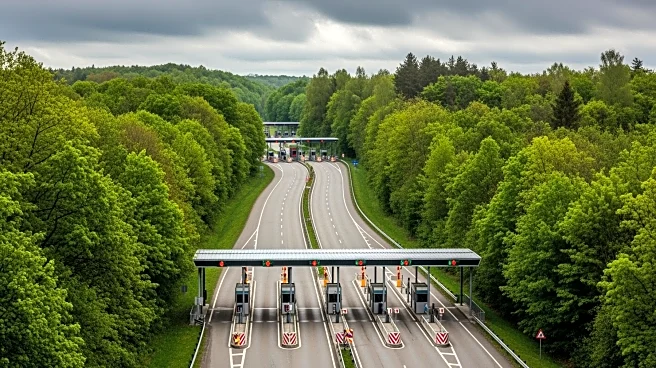What's Happening?
The UK government is facing a significant fiscal shortfall estimated at £22 billion, prompting discussions on potential measures to address the deficit. Among the options being considered is the introduction
of a pay-per-mile road tax scheme, which could replace the current fuel duty system. This comes as vehicle availability in the UK transport market has surged, leading to a drop in transport prices. The Haulage Index and Courier Index have both seen decreases, reflecting a market with more vehicles chasing fewer loads. Despite the drop in demand, driver pay has continued to rise, with vacancies reaching their highest level of the year.
Why It's Important?
The potential introduction of a pay-per-mile road tax scheme could have significant implications for the transport industry and consumers. It may lead to increased costs for road users, impacting logistics and freight operations. The shift from fuel duty to a mileage-based tax could also affect consumer behavior, particularly as the transition to electric vehicles continues. Industry groups are concerned about the potential reversal of the fuel duty cut, which could increase living costs and slow economic recovery. The decision could also influence the UK's approach to environmental policies and the promotion of electric vehicles.
What's Next?
The UK government is expected to outline its plans in the upcoming autumn budget on November 26. The transport sector is closely monitoring these developments, as any changes to the tax system could have wide-ranging effects. The Bank of England is also set to debate interest rate adjustments, which could impact consumer spending power. Stakeholders in the transport industry are preparing for potential changes and assessing the implications for their operations and financial planning.
Beyond the Headlines
The consideration of a pay-per-mile road tax reflects broader trends in transportation policy, as governments seek sustainable revenue sources amid declining fuel duty receipts. The transition to electric vehicles is reshaping tax structures and prompting discussions on how to balance environmental goals with fiscal needs. The outcome of these discussions could set a precedent for other countries facing similar challenges.









